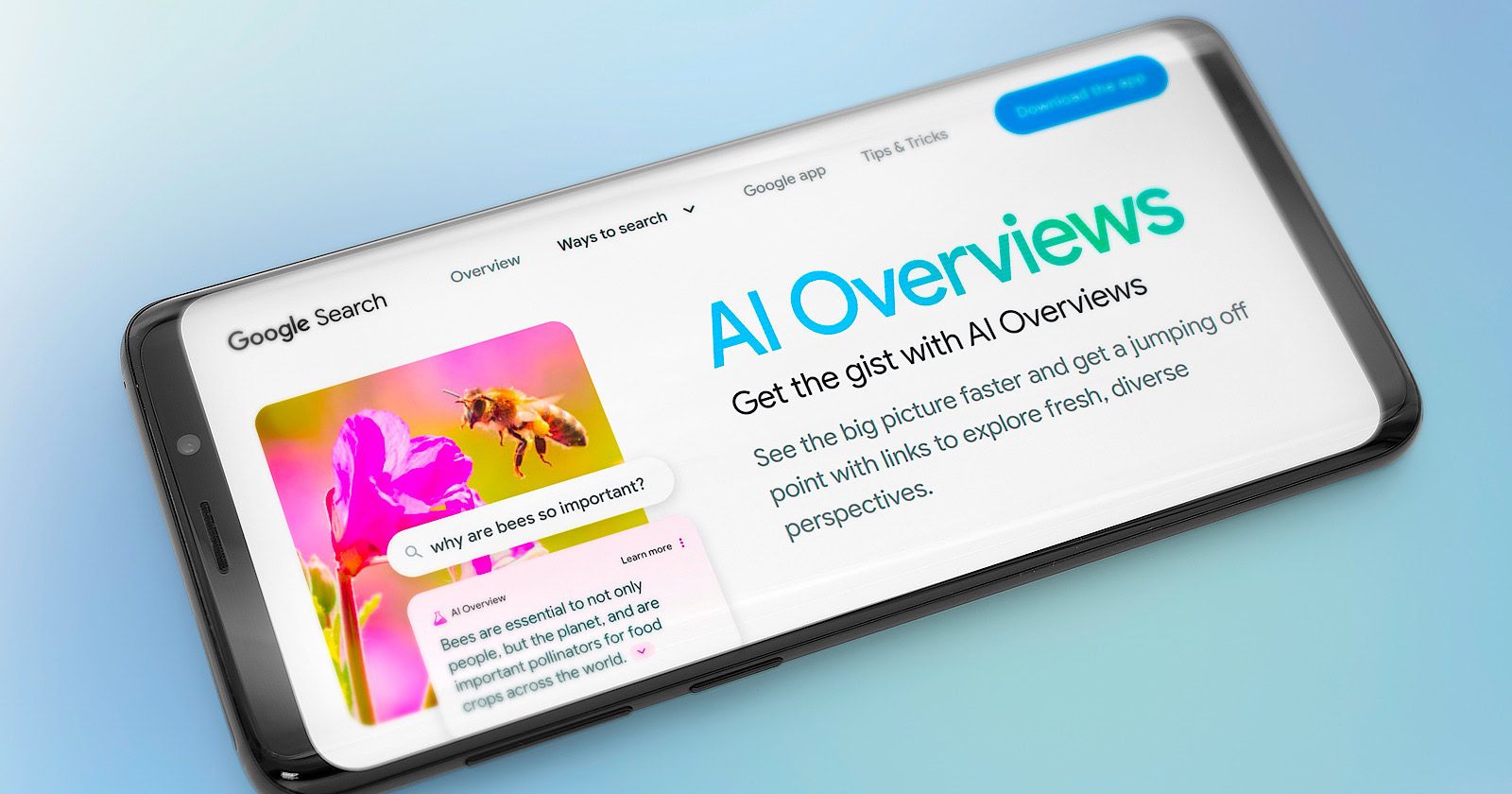Since its U.S. launch in May, Google’s AI Overviews feature has created controversy among news publishers.
The generative search tool attempts to directly answer queries by synthesizing information from web sources into AI-generated overviews.
While offering users a new level of convenience, AI Overviews has been criticized for factual inaccuracies, lack of transparency in sourcing content, and disincentivizing clicks to original articles.
Despite an initial scale-back, Google has doubled down – releasing Overviews in six more countries and additional languages in August.
Background on AI Overviews
Google introduced AI Overviews as an experimental opt-in feature that has since been rolled out to general search results.
Instead of listing links to webpages, AI Overviews aim to provide a complete answer using natural language.
Many publishers are concerned that AI Overviews could cannibalize their organic search traffic by satisfying user queries without requiring a click-through.
There are also complaints that Google is repackaging and republishing content without attribution or revenue sharing.
Audience Directors Speak Out
In interviews with the Nieman Journalism Lab at Harvard, seven leading audience strategy experts shared their perspectives on adapting to the AI Overviews disruption.
Veronica de Souza of New York Public Radio emphasized reducing reliance on Google by building direct audience relationships through owned channels like apps and newsletters.
Souza states:
“We’ve doubled down on converting people to our O&O (owned-and-operated) platforms like our app and newsletters…More transparency about which categories of search queries surface AI Overviews would be a good start.”
Washington Post’s Bryan Flaherty raised concerns about misinformation risks and lack of performance data insights from Google.
Flaherty states:
“If Google loses users due to the quality issues in its results and AI Overviews, users could continue to turn to non-traditional search platforms that don’t have as direct a tie back to sites, like YouTube and TikTok, which will have an impact on traffic.”
Vermont Public’s Mike Dougherty pointed out the lack of clear citations to original sources in Overviews.
Dougherty states:
“This product could so easily put clickable citations into or above the text. It could even write, ‘According to [publisher],…’ the way one news outlet might credit another.”
Scott Brodbeck of Local News Now remained optimistic that quality journalism can outcompete brief AI summaries.
Brodbeck states:
“If you as a news publisher cannot out-compete a brief AI-written summary, I think you have a big problem that’s not just being caused by Google and AI.”
Marat Gaziev of IGN advocated for deeper symbiosis between Google and reputable information providers to uphold accuracy standards.
Gaziev states:
“RAG requires a deep and symbiotic relationship with content publishers and the media industry to ensure that only credible sources are utilized during retrieval and augmentation.”
YESEO founder Ryan Restivo warned about potential carbon impacts from the heavy computing power required at scale.
Restivo states:
“The biggest problem, in my opinion, is the competition entering this space…The amount of compute needed to produce these at scale is hurting our environment.”
LA Times’ Seth Liss speculated Google may eventually prioritize generating answers over linking to external sites.
Liss states:
“If Google decides its best way forward is to keep all of those readers on its own site, there will be a lot of sites that have to figure out other ways to find new audiences.”
Measured Optimism
While most publishers interviewed by Nieman Journalism Lab expressed reservations, some took a more optimistic view.
The consensus is that high-quality, in-depth journalism will draw readers to visit publisher websites for full context beyond a brief AI summary.
There’s also hope that Google will find mutually beneficial ways to incorporate publisher content without usurping it entirely.
The Path Forward
As the search evolves, publishers are exploring strategies to adapt – from re-investing in email newsletters and mobile apps to developing AI-focused SEO best practices.
The debate highlights a challenge all publishers share – how to remain discoverable and generate traffic/revenue when search engines can directly answer queries themselves.
Featured Image: Marco Lazzarini/Shutterstock

